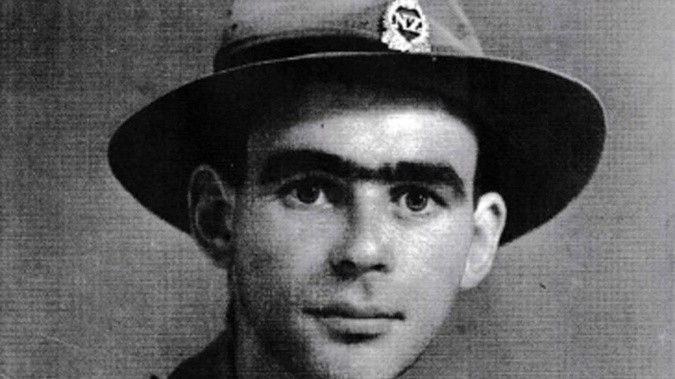Brant Robinson, 104, is understood to have been the last Kiwi survivor of the Battle of Crete.
New Zealand's last surviving veteran of the Second World War's bloody Battle of Crete – and possibly the world's - has died, aged 104.
Cyril Henry Brant Robinson, known as Brant, passed away at Whangamata Moana House retirement home on Sunday.
Paul London, a former president of the New Zealand Battle of Crete Association, believes that Robinson was the last Kiwi veteran of the Battle of Crete and "in all probability, he may well be the world's last solider to have fought in the battle".
In 2018, the Herald interviewed Robinson at his Whangamata rest home, along with the two other final survivors, for the 77th anniversary of the battle – New Zealand's first major action of World War II.
After 12 days of fierce bloody fighting against crack Nazi paratroopers, often at close quarters with bayonets fixed, 672 Kiwis were dead. A further 967 were wounded and more than 2000 taken as prisoners of war as the Mediterranean island fell into Hitler's hands.
Brant Robinson passed away on Sunday.
But the Cretans never forgot the men from Down Under who fought in their hour of need.
After arriving on Crete with the advance party to set up camp, Staff Sergeant Robinson was captured by the rampaging Germans on June 1, 1941 at Souda Bay.
"The worst thing about being taken prisoner is that you don't know how long it will last," Robinson told the Herald four years ago.
Force-marched for days without food and little water, despite Cretan locals trying to stash food in their passing hands, he was kept in a POW camp on Crete for seven weeks before being taken to Nazi Germany.
He was imprisoned at Stalag VIII-B Lamsdorf, opened in 1939 to house Polish prisoners from Germany's September 1939 invasion. He was later moved to Stalag 8B Teschen for three months, then Stalag 383 Hohenfels.
But by early 1945, with the Soviet armies storming towards Germany, Robinson was one of thousands of men forced to march west. Known variously as The March, The Long March, or Death March Across Germany, it led to hundreds dying, starving in the blizzards and sub-zero temperatures.
Robinson, however, counts himself lucky.
"We weren't so bad," he says.
"We only had to march for about three weeks while those who were further east had to start in winter and got badly frostbitten marching in the snow. We were quite lucky, with good weather, and the Red Cross was able to catch up with us and give us something to eat. So it could've been worse."
He was finally liberated by advancing American troops. And so began his long journey home.

